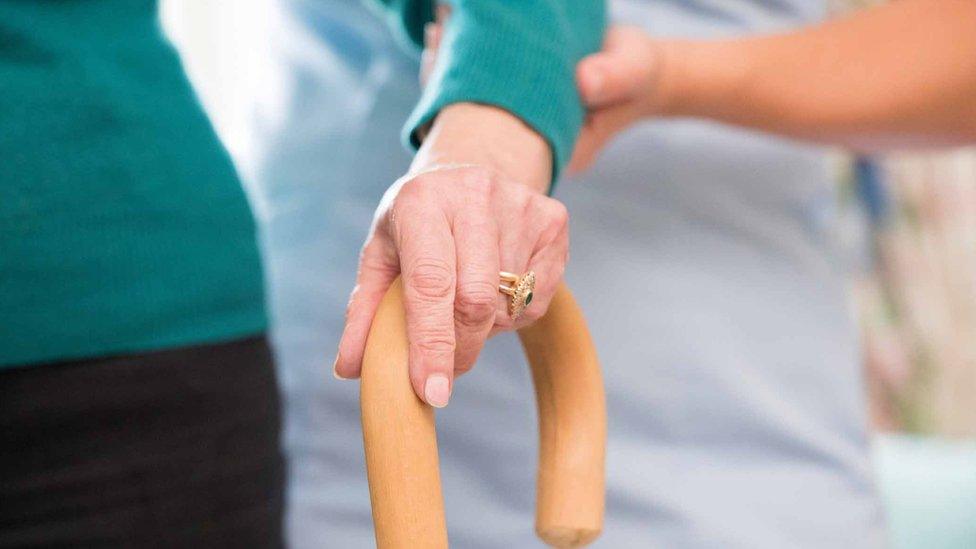Warwick researchers bid to revolutionise coronavirus testing
- Published
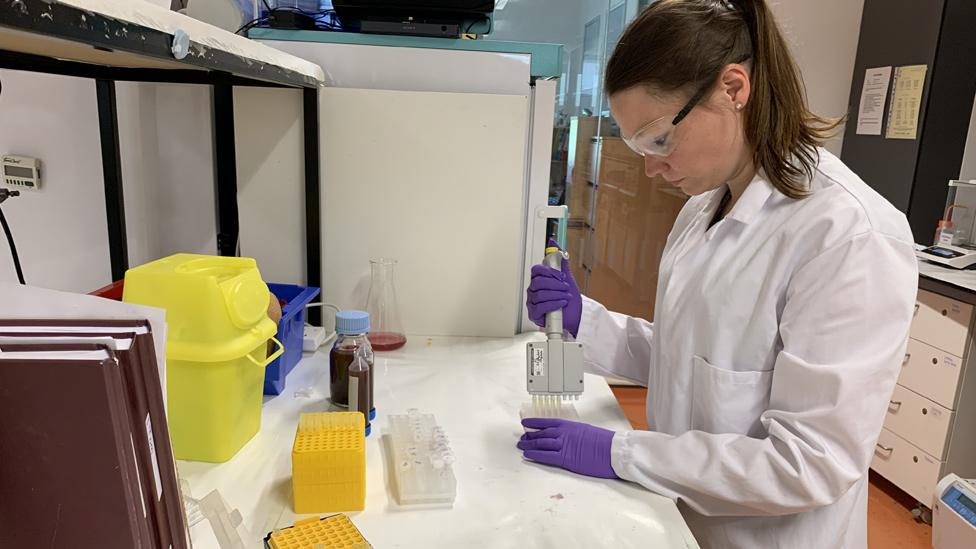
Scientists believe the tests could eventually be used by anyone and produce a result within minutes
Getting a test to see if you currently have coronavirus isn't very pleasant. You need to stick a cotton swab far enough down your throat you'll likely gag and then attempt to poke your brains out via your nose.
The nasal swab in particular looks so distressing we debated if we could even film one for a recent report.
Then you have to wait for your samples to be sent to the lab, tested and the result to be sent back to you. A rapid response would be getting the final result in 12 hours, but it could take even longer.
Now a team at the University of Warwick say they have created a test for coronavirus that works just like a pregnancy test.
No need for medical staff or labs and with a clear result in about five minutes. At the moment they've been using nasal swab samples to test it, but they are confident it could work with a saliva sample.
Nify chemistry
This test is so similar to a pregnancy test that the team purchased real pregnancy tests online, stripped out the insides and used the plastic cases for their prototypes.
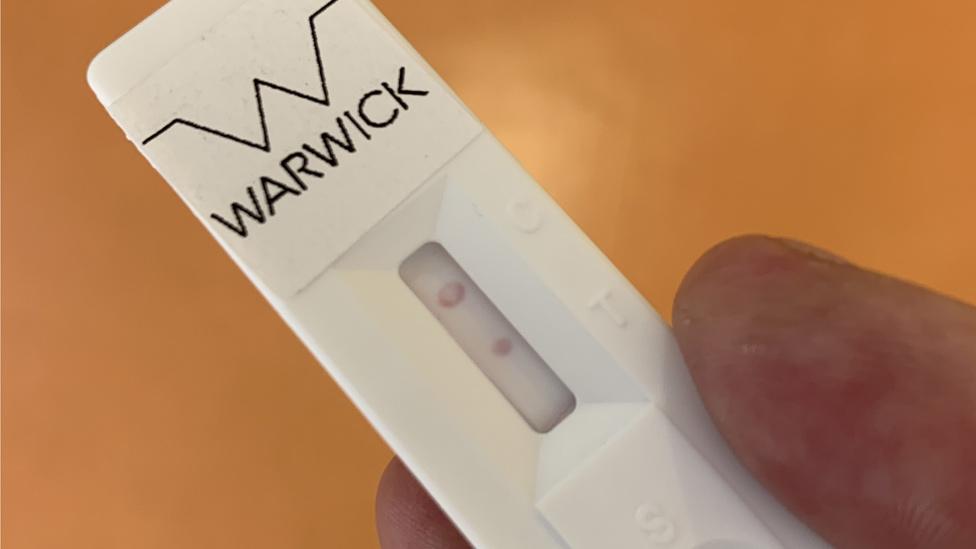
The test is designed to mimic a pregnancy test and may ultimately use saliva rather than a nasal swab
Behind the test is some really nifty chemistry.
Rather than directly detect the virus or antibodies the test instead uses sugars.
These grab on to the virus as it moves along a test strip. In the lab it takes about five minutes for the test to show a visible line indicating the sugars have detected coronavirus and you have a positive result.
Off to 14 days isolation with you.
Ok now some important caveats. Work on coronavirus is moving very quickly right across science. While this work has produced a scientific paper, which I've read, it hasn't yet been reviewed and published.
This approach is all very, very new. When it comes to the accuracy of the test the team are confident they can detect the virus, but it's still too early to say how well it will do in the real world.
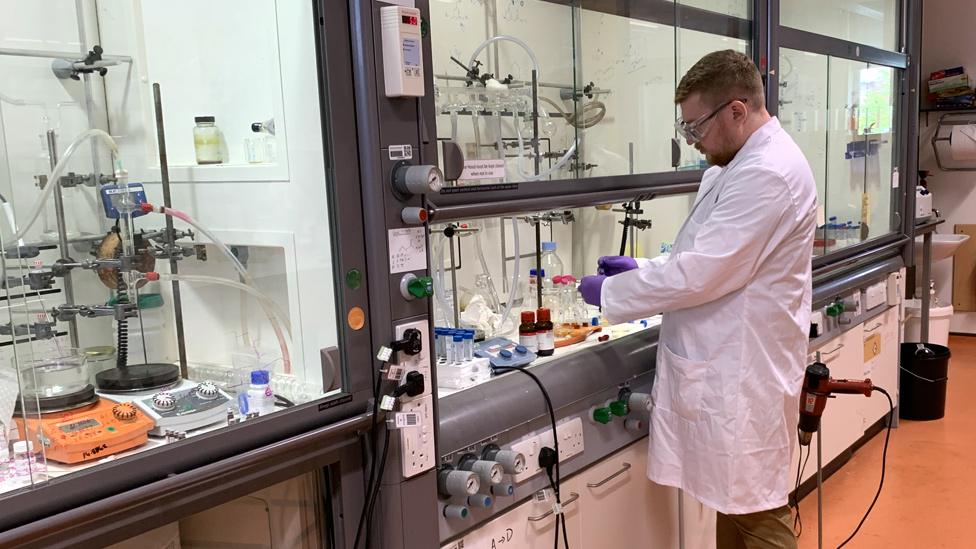
Research is still at a very early stage and it is too soon to say how well it will do in the real world
Controlling the disease
One reason for talking to a reporter at such an early stage is to see if this new test can work on a much larger scale and for that you need to attract the attention of a manufacturer.
But if it works it will be a really useful tool in our struggle to control this disease.
Imagine a suspected outbreak of coronavirus on a cruise ship. Whereas now you have to send out a medical team for testing and gear up a lab to generate the results, you could instead just send a bag of 600 disposable plastic tests that anyone could use and get a result while they waited.
Or you could test everyone flying from an airport. Even better for developing countries this is a cheap alternative to existing expensive high-tech testing.
And it would also mean a trip to a Covid-19 car park testing station could become much faster and much less invasively unpleasant.
Your nose will thank the researchers.

SOCIAL DISTANCING: What are the rules now?
SOCIAL LIFE: When will pubs, bars and restaurants reopen?

- Published25 June 2020
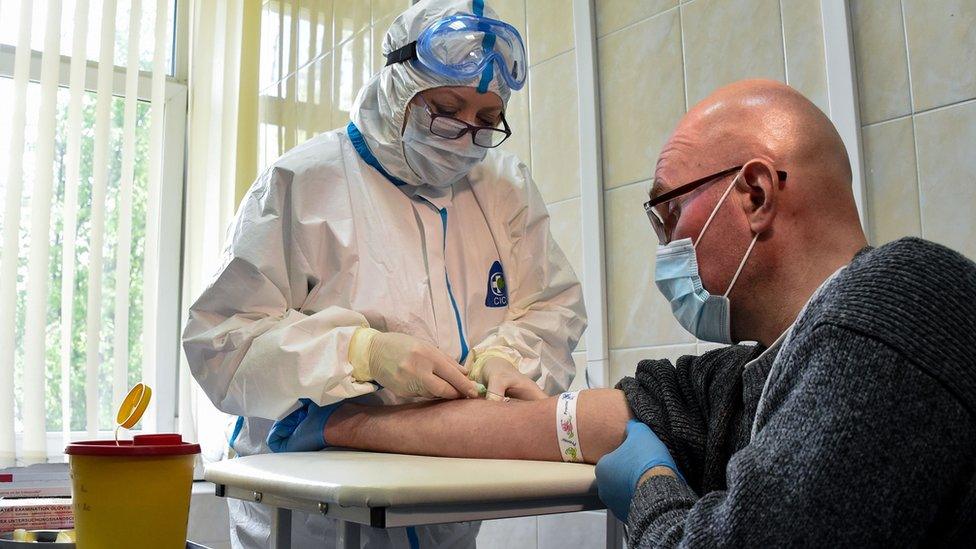
- Published3 May 2022
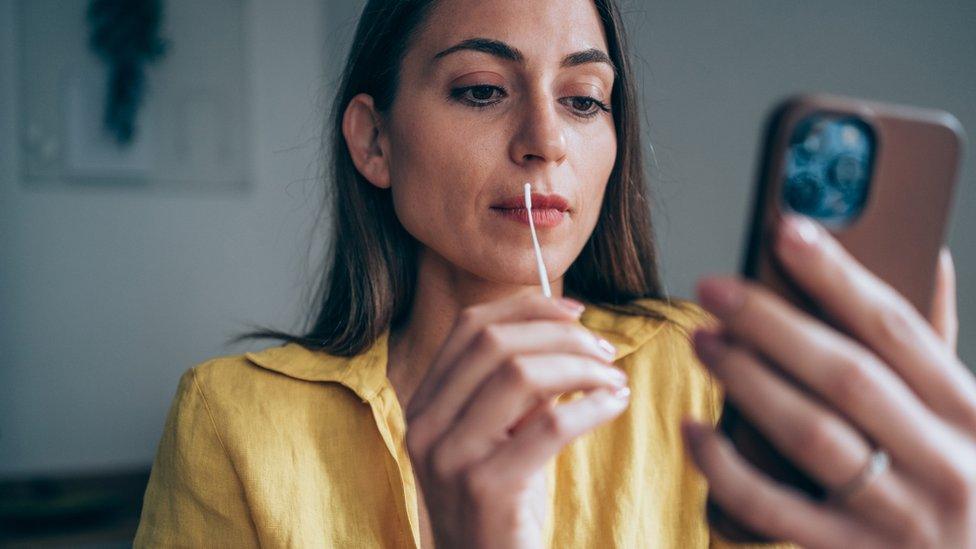
- Published25 June 2020
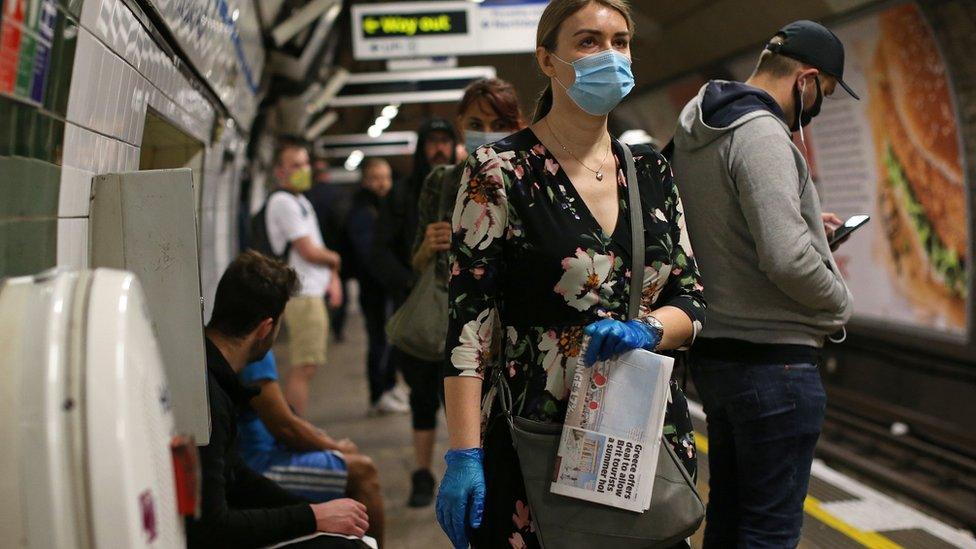
- Published24 June 2020
